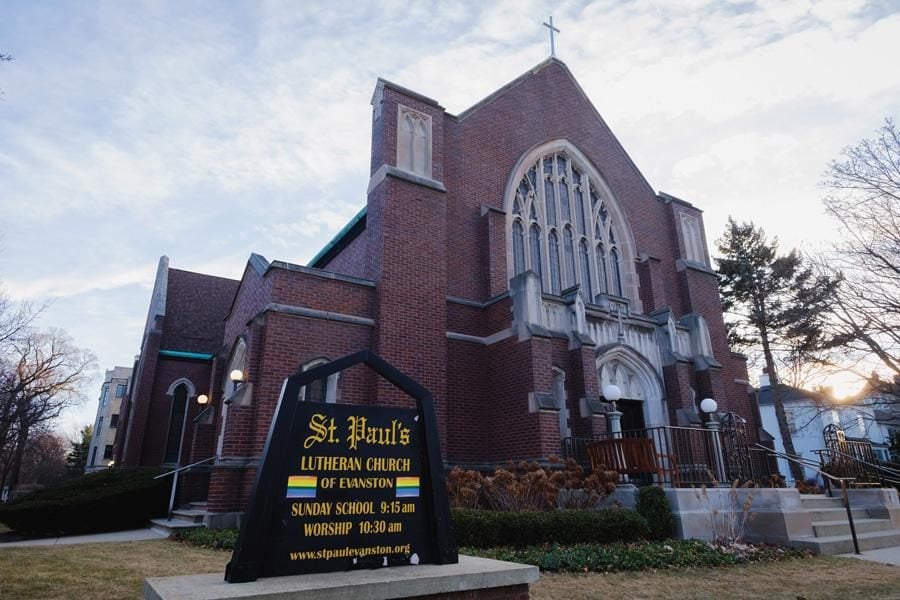Evanston clergy calm despite unhappiness with ruling on housing allowances
Daily file photo by Jeffrey Wang
St. Paul’s Lutheran Church, 1004 Greenwood St. A federal ruling in October declared that tax-free housing allowances for clergies violated the Establishment Clause, which maintains the separation of church and state.
January 10, 2018
The Rev. Andy Guffey had an unusual reaction when he learned clergies are at risk of losing their tax-exempt status on housing allowances.
Initially “annoyed,” the leader of Canterbury Northwestern, the campus Episcopal ministry, quickly changed his perspective to consider potential benefits, he said.
“It might actually simplify our taxes,” Guffey said. “The housing allowance is exempt from federal income tax, but not from social security, which we have to calculate at the end of the year. It’s a lot of time and energy to do that.”
A federal ruling in October declared that tax-free housing allowances for clergies violated the Establishment Clause, which maintains the separation of church and state. The Freedom from Religion Foundation filed the lawsuit in the case.
The lawsuit rests on the basis that these allowances provide “special tax privileges” to religious workers alone, not to comparable secular workers, said Patrick Elliott, attorney and member of the foundation.
“The fact that ministers are given this benefit and no other taxpayers (get it) violates the Establishment Clause,” Elliott said. “It advances religion and puts more money in their pockets to put toward religious purposes.”
The U.S. District Court for the Western District of Wisconsin ruled the practice unconstitutional in October, but the appellate level will review the decision. Elliott said he anticipates that the allowances will “ultimately be ruled unconstitutional” by the Seventh Circuit Court of Appeals.
The loss of tax-free housing would introduce a financial burden on both clergies and their religious communities as a whole, Guffey said.
Both Guffey and his wife are clergy members, he said, and their present incomes are “not exorbitant.” Losing these allowances would put a strain on their already “austere household budget,” he said.
“We need to think about whether we need to move to another place that’s a little less expensive or whether we might need to find supplemental income,” Guffey said.
The Rev. Michael Kirby, senior pastor of Northminster Presbyterian Church in Evanston, hopes to see the decision overruled, he said, especially because the church’s position has “never been articulated” in court, he said.
“There are both procedural and substantive issues on appeal that have not been heard yet,” Kirby said. “No church has ever been a party to the litigation.”
As an alternative to moving residence, Kirby said he might look for a roommate to avoid having to adjust where he lives.
Kirby said he was “dismayed and concerned” when he first heard of the ruling, largely due to his belief in the importance of living in the community he serves. He values the close proximity because of the “authority of being a citizen in the community,” he said.
“It demonstrates that you have skin in the game with regard to the issues that are facing your community because you actually live in the community,” Kirby said.
In the time leading up to the anticipated appeal, Kirby said religious communities must stress benefits associated with having leaders in communities.
Leadership groups in the church have discussed what will happen if the ruling stands, Kirby said. But in terms of bracing for the possible repercussions, worrying can wait, he said.
“It’s very premature for any of us to panic,” Kirby said. “This is still a long way from national application that would directly affect the current tax laws.”
Email: [email protected]
Twitter: @ceproctor23


